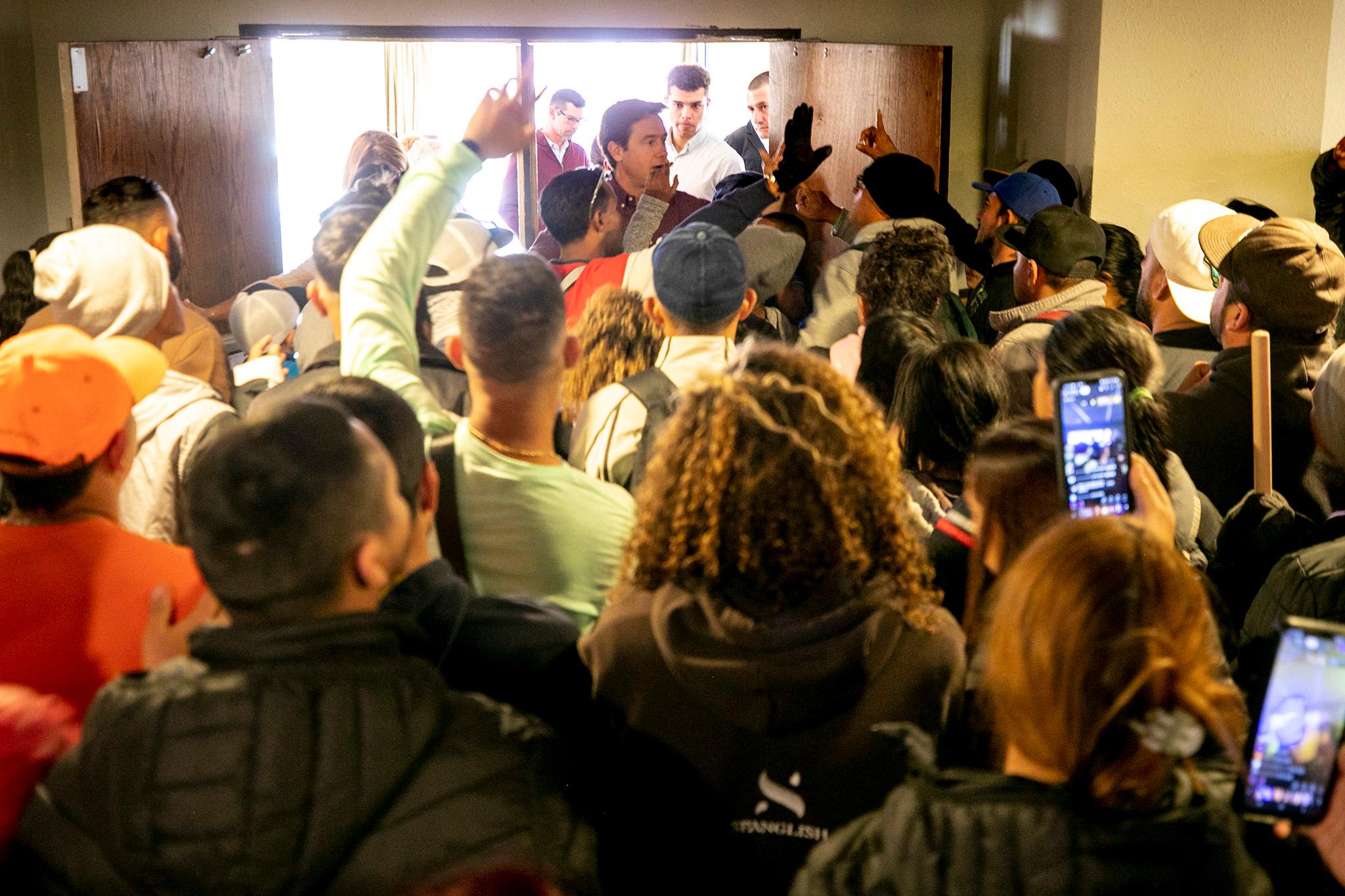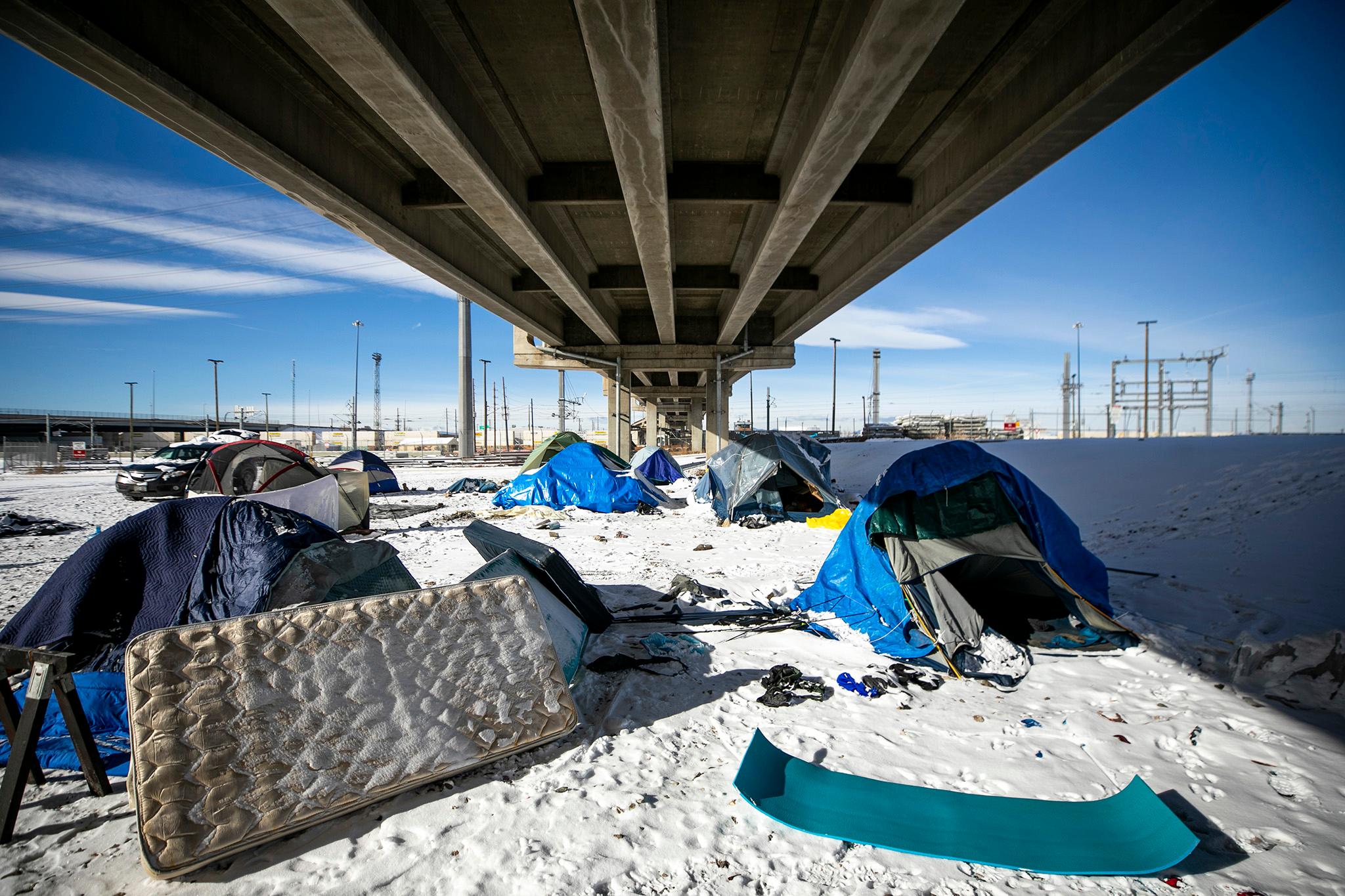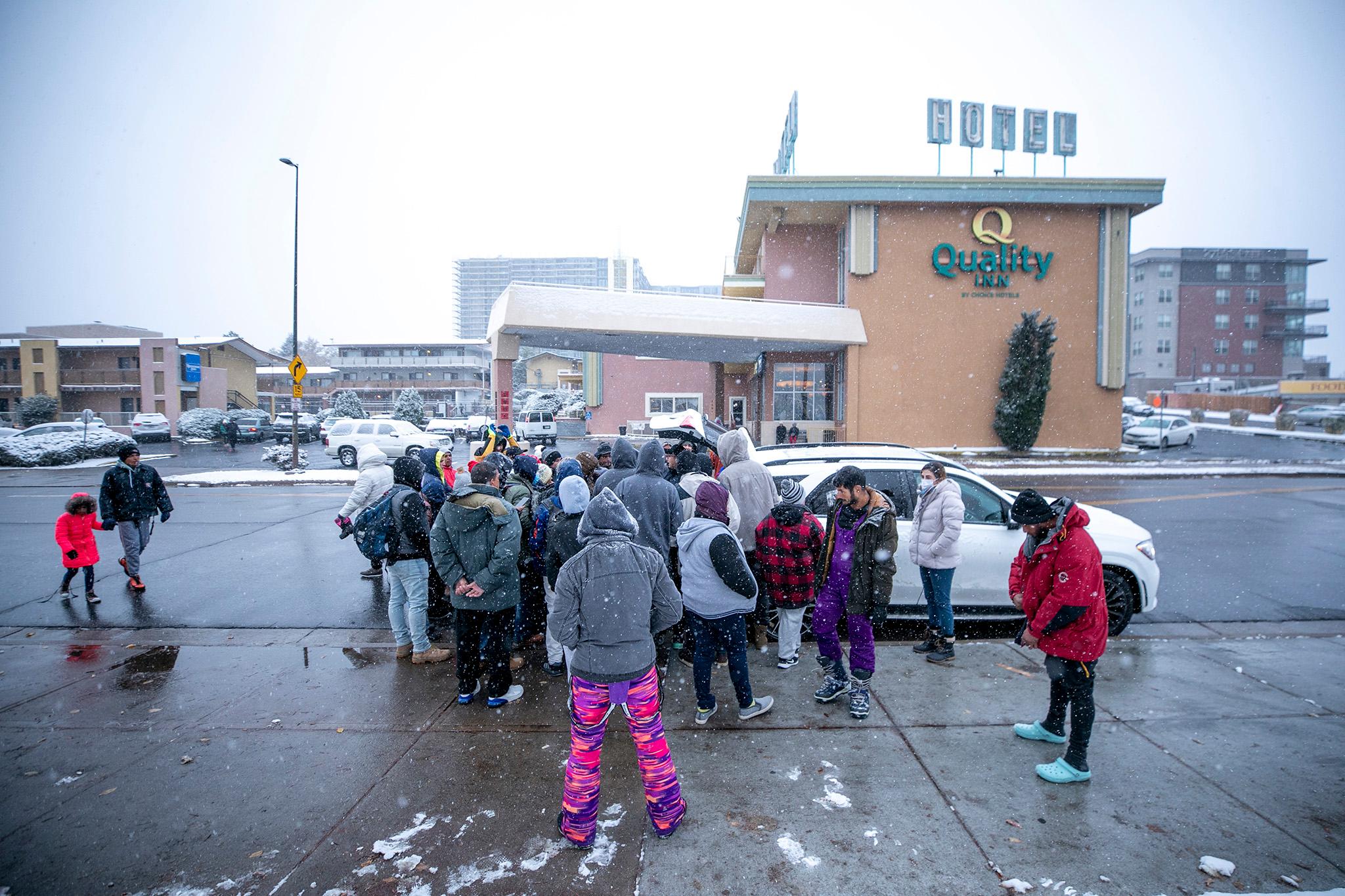Denver officials announced they will once again limit how long migrant families can stay in city-run motels when they arrive from the border. The move could potentially leave thousands of people without shelter in the middle of winter and put additional strains on Denver's already overburdened shelter system for unhoused locals.
Previously, the city allowed families to stay in their hotels for 37 days, longer than they were offering to adults without children. With nowhere else to go, many ended up in tents on sidewalks and under bridges when they had to leave. The sight of children living in tents in freezing weather didn't sit well with many Denverites, and Mayor Mike Johnston suspended that policy on Nov. 17.
Capacity in these hotels grew to new highs as officials allowed families to stay inside. Denver is currently sheltering more than 4,400 people.
"The changes will be rolled out over the next several weeks and come as Denver experiences a significant surge in arrivals from the southern border as well as pressing budgetary concerns," officials said in a statement on Wednesday. "While we recognize families need as much time as we can give them, we must once again limit the amount of time families can remain in shelter."
They also said they'll lengthen time limits for families to 42 days. Both policy changes begin Feb. 5.
Resuming the policy to force migrant families out of city-run shelters is the first big sign that the administration is cutting services to migrants.
For weeks, Johnston has warned that the city could not keep supporting new arrivals at the rate it has been without cutting as much as 10% from the city's budget. Doing so, he told Denverite, is unsustainable, and the city needs additional state and federal support.
Johnston has been looking for savings and for money to shift to the migrant response, even asking city departments to look for places in their budgets they can cut. The administration is making every department run every press release by the mayor's office so that his staff can decide whether departments should even bother to announce new projects that could be on the chopping block or delayed.

This week, Johnston is in Washington D.C., pushing federal lawmakers and politicians to increase federal funding for migrant support, coordinate migrants' entry into the country and speed up the work permitting process.
"Over the past two months, Denver has seen a dramatic uptick in arrivals and is currently sheltering 4,500 people," according to the statement from the city. "This influx -- the fourth significant surge in arrivals since late 2022 -- is straining capacity and based on current projections, could force the city to cut as much as $180 million from its annual budget."
Where did the six-week timeline come from, and how are advocates responding to the news?
Families who have just arrived will receive up to six weeks in shelter. The administration claims, "This timeline is in line with best practices as it relates to attaining housing."
When Denverite asked the city where this notion of best practices came from, Department of Human Services spokesperson Jon Ewing explained that the city has found that six weeks is sufficient. There is no concrete data to point to and no hard numbers to demonstrate this, and the six-week timeframe is "anecdotal."
"When we were speaking with our community partners they were really pushing for that added time to get to six weeks because they believed it would assist in a smoother transition from shelter to next steps," Ewing explained. "We then worked that into our calculations on the rollout of this new plan. I can't say this timeframe makes sense for all populations. It makes sense to us for the specific population we're managing here."
Formerly homeless locals have told us it took as long as eight months to find permanent housing once they landed in Denver's Safe Outdoor Sites.
Advocates disagree that moving families out of shelter could be a part of "best practices."
Johnston, who spent his first six months effectively moving more than 1,000 locals from the streets into homes, could now see thousands headed to live in tents on the city's streets or other unstable housing situations.
The city plans to continue to connect people with housing navigators and potentially help some migrants get to other cities that are more affordable than Denver, Ewing said.
"Our goal is not for thousands of people at the end of March to be on the street," he said. "We are going to do everything on God's green earth to prevent that from happening."
People who've been working with people who've already timed out of shelters have already begun to scramble.
"It's a scary situation knowing the friends I have met have less than a month to figure out a secure place to stay. Because the government is making it extremely difficult for them to get a work visa, I don't know what my friends and their baby are going to do," Keziah Chavez, who been working with several groups of mothers to offer direct, community-based response to unsheltered migrants, told Denverite. "I'm about to start begging churches to take them in, at least until they can save money to get something more stable and secure, all while also saving money to get their legal paperwork going."

Maria Montero, who moderates a number of Facebook groups where migrants connect with residents who want to help, added, "I think it's sad that people are being exited. I get we are running out of space, but where are we supposed to put these families?"
"It's heartbreaking that we can't get the newcomers work permits so that they can take care of themselves and their families," Montero wrote Denverite. "If the government could allow them to work and care for themselves, then the community wouldn't have to frantically be looking for tents, just in case someone needs it in the middle of the night."
A lot of people activated by this issue have been frustrated by a difficult cycle, where people who've been exited from hotels end up in sidewalk encampments - then, when those encampments are swept, officials put them back in emergency shelters, at least for a limited time.
Amy Beck, an advocate who's been helping migrants survive outside, has complained for months that there must be a better way.
"The city continues to set our migrant community up for failure with unrealistic timelines in shelter and lack of services to help them create stability," she told us. "Children do not belong living in a tent on our streets to be criminalized under the camping ban. Once again we are shaking our head at the lack of a long-term plan for success."
Many of these volunteers are still proud of the ways Denver has stepped up, no matter how complicated the response has been. But some are also losing steam, especially in the face of so many more people clamoring for somewhere warm to sleep.
"It's never gonna end," Montero told us. "They need to close the border."
Editor's note: This story has been updated with additional comment from city officials about how they plan to help migrants exiting shelter.












